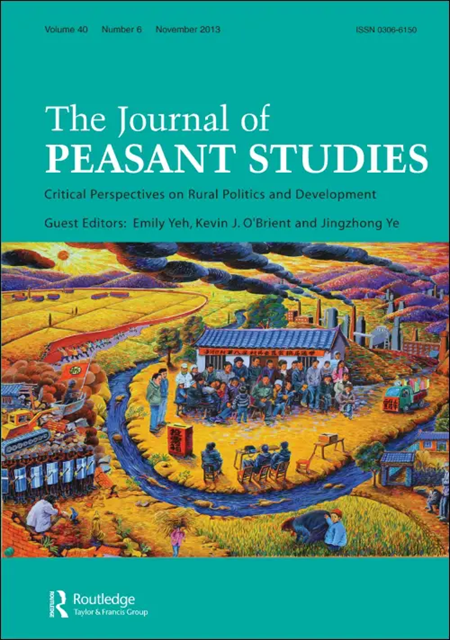Historicizing food sovereignty
IF 4.8
1区 社会学
Q1 ANTHROPOLOGY
引用次数: 192
Abstract
To historicize food sovereignty is not simply to recognize its multiple forms and circumstances across time and space, but also to recognize its relation to the politics of capital in a crisis conjuncture. This paper traces the evolution of the food sovereignty vision from the initial stages of the food sovereignty countermovement to the present, arguing that food sovereignty politics have not only traveled from countryside to city as consumers/citizens anticipate ecological constraints and compensate for unequal food distributions, but also they have been confronted with transitions in the food regime following the recent food crisis. New enclosures, in the forms of land grabs and value-chains, administered by public-private ‘governance’ partnerships, have contradictory effects: threatening the peasant base of the food sovereignty countermovement, but also threatening to exacerbate the food crisis, as evidenced in recent food riot politics animated by the food sovereignty vision. As the food regime restructures, it reconditions the possibilities of food sovereignty politics. Arguably, the ultimate historicization of food sovereignty possibility is immanent in cumulative energy and climate feedbacks.将粮食主权历史化
将粮食主权历史化,不仅要认识到它跨越时间和空间的多种形式和情况,还要认识到它与危机关头资本政治的关系。本文追溯了从粮食主权反运动的初始阶段到现在的粮食主权愿景的演变,认为粮食主权政治不仅随着消费者/公民对生态约束的预期和对不平等粮食分配的补偿而从农村传播到城市,而且在最近的粮食危机之后,他们还面临着粮食制度的转变。新的圈地,以土地掠夺和价值链的形式,由公私“治理”伙伴关系管理,具有矛盾的效果:威胁到粮食主权反运动的农民基础,但也有可能加剧粮食危机,正如最近由粮食主权愿景激发的粮食骚乱政治所证明的那样。随着粮食制度的重构,它重新设定了粮食主权政治的可能性。可以说,粮食主权可能性的最终历史化是内在的累积能量和气候反馈。
本文章由计算机程序翻译,如有差异,请以英文原文为准。
求助全文
约1分钟内获得全文
求助全文
来源期刊

Journal of Peasant Studies
Multiple-
CiteScore
10.50
自引率
17.60%
发文量
99
期刊介绍:
A leading journal in the field of rural politics and development, The Journal of Peasant Studies (JPS) provokes and promotes critical thinking about social structures, institutions, actors and processes of change in and in relation to the rural world. It fosters inquiry into how agrarian power relations between classes and other social groups are created, understood, contested and transformed. JPS pays special attention to questions of ‘agency’ of marginalized groups in agrarian societies, particularly their autonomy and capacity to interpret – and change – their conditions.
 求助内容:
求助内容: 应助结果提醒方式:
应助结果提醒方式:


